Congratulations on becoming a proud puppy parent! As you embark on this exciting journey with your furry friend, it's crucial to ensure their health and safety. That's where vaccinations come in. Our article, "A Guide to the Vaccination Schedule for Puppies," is here to help you navigate through the important vaccinations your new companion needs to stay protected. From preventing deadly diseases to building a strong immune system, this comprehensive guide will provide you with everything you need to know to keep your precious pup happy and healthy. So, let's dive in and discover the essential vaccinations your little bundle of joy needs!
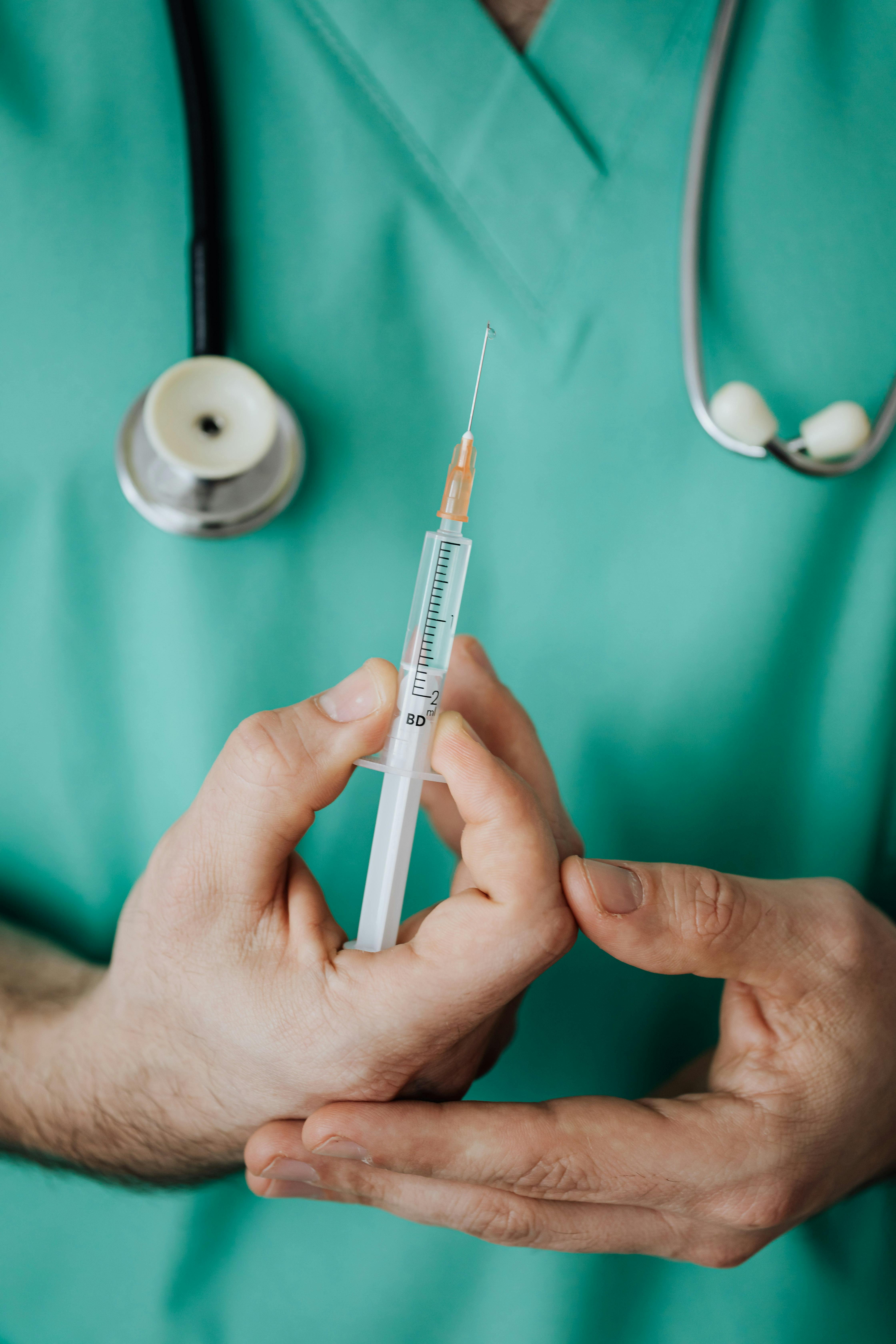
This image is property of images.pexels.com.
Why Vaccinations Are Important for Puppies
Vaccinations play a crucial role in the health and well-being of puppies. Not only do they prevent fatal diseases, but they also build immunity, protect others, and ensure that you comply with legal requirements. By administering the appropriate vaccines at the right time, you are taking important steps to safeguard your puppy's health and promote a long and happy life.
Preventing Fatal Diseases
One of the primary reasons vaccinations are essential for puppies is their ability to prevent fatal diseases. Diseases like distemper, hepatitis, parvovirus, and rabies can be life-threatening for dogs. By vaccinating your puppy, you are giving them the best chance at warding off these deadly diseases. Vaccines contain a weakened or inactivated form of the disease-causing organism, stimulating the puppy's immune system to produce the necessary antibodies to fight off the disease if they are exposed to it in the future. This proactive approach significantly reduces the risk of your puppy falling victim to these potentially devastating illnesses.
Building Immunity
Vaccinations are not only vital for preventing diseases but are also crucial in building immunity. Just as newborn babies receive antibodies through their mother's milk, puppies benefit from their mother's immunity in their first weeks of life. However, this immunity gradually decreases over time, leaving puppies susceptible to infections. Vaccinations help bridge this immunity gap by introducing small amounts of disease-causing organisms into the puppy's body. This exposure triggers the immune system to produce protective antibodies, strengthening their immunity against future infections. By gradually exposing puppies to these diseases in a controlled manner, vaccinations enable their immune systems to develop the necessary defense mechanisms to fight off infections and maintain good health.
Protecting Others
Vaccinations not only protect your puppy but also have a broader impact by safeguarding others. Canine diseases can easily spread among dogs, and unvaccinated puppies can become carriers or transmit the disease to other susceptible animals. By ensuring your puppy is properly vaccinated, you are minimizing the risk of them spreading diseases to other dogs they come into contact with. This not only helps protect other pets within your household but also contributes to the overall well-being of the canine community. By doing your part in vaccinating your puppy, you are helping create a safer environment for all dogs.
Complying with Legal Requirements
In addition to the health benefits, vaccinating your puppy is often a legal requirement. Many jurisdictions have laws in place that mandate the vaccination of dogs, particularly for diseases like rabies. Compliance with these regulations is not only important for the well-being of your puppy but also for public health and safety. Failure to comply with these requirements can result in fines, penalties, or even the removal of the dog from your care. By staying up to date with your puppy's vaccinations, you are not only fulfilling your legal obligations but also demonstrating your commitment to responsible pet ownership.
When to Start Vaccinations
While the importance of vaccinations for puppies is clear, it is essential to understand when to start the vaccination process. Age considerations and a general timeline can guide you in providing the optimal timing for your puppy's vaccinations.
Age Considerations
Puppies first acquire immunity from their mother's milk, which contains essential antibodies. However, this passive immunity begins to decline as early as six weeks of age. This decline creates a window of opportunity for vaccinations to take effect. It is crucial to start vaccinations after the passive immunity from the mother diminishes to ensure the puppy's immune system can respond to the vaccines. Vaccinations administered too early may not be as effective due to interference from the maternal antibodies. Therefore, it is generally recommended to begin vaccinations between the ages of six and eight weeks.
General Timeline
The vaccination timeline for puppies typically follows a series of shots administered at specific intervals. This schedule takes into account the optimal timing for each vaccine and the developmental stages of the puppy's immune system. While individual veterinarians may have slight variations in their recommended schedules, the general timeline includes a series of vaccinations at 6-8 weeks, 9-11 weeks, 12-14 weeks, and 16-17 weeks. These initial vaccinations are followed by booster shots at one year and ongoing maintenance vaccinations throughout your dog's life. By adhering to this timeline, you are providing your puppy with the best chance at developing strong immunity and protecting them against preventable diseases.
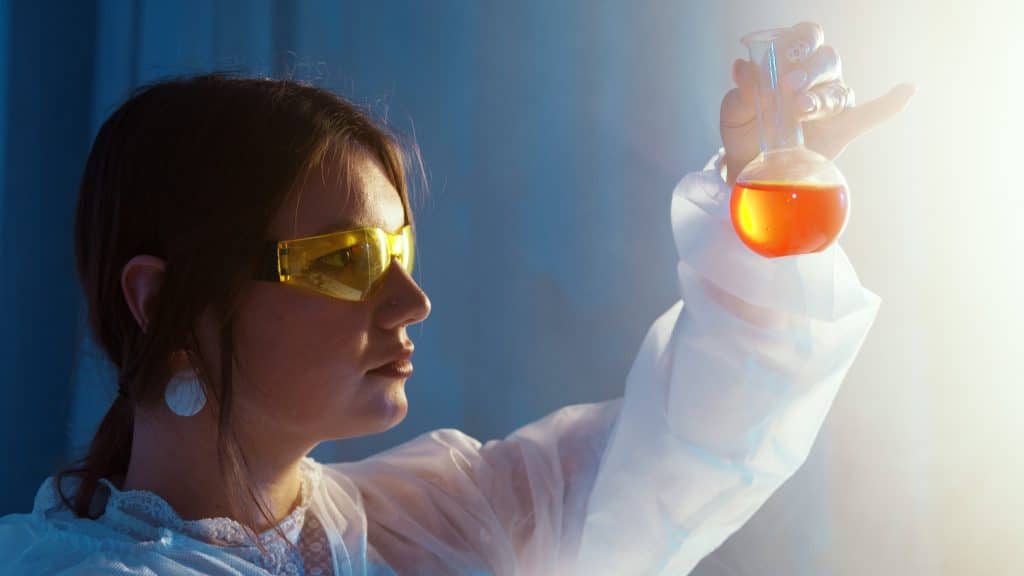
This image is property of images.pexels.com.
Core Vaccines for Puppies
Several vaccines are considered core vaccines for puppies, as they provide protection against the most common and severe diseases. It is crucial to ensure that your puppy receives these core vaccines as part of their vaccination schedule.
Distemper
Distemper is a highly contagious viral disease that affects a dog's respiratory, gastrointestinal, and nervous systems. It can be fatal, especially in puppies. Distemper vaccinations are an essential part of your puppy's immunization regimen, as they significantly reduce the risk of contracting this devastating disease.
Hepatitis
Hepatitis is a viral infection that primarily affects the liver. It can lead to serious complications and even death in puppies. Vaccinating against canine hepatitis is crucial to ensure your puppy's liver health and overall well-being.
Parvovirus
Parvovirus is a highly contagious and life-threatening disease that affects a dog's intestines. It causes severe vomiting, diarrhea, and dehydration, often leading to death, especially in young puppies. Vaccination against parvovirus is a critical step in protecting your puppy and preventing the spread of this dangerous virus.
Parainfluenza
Parainfluenza is a highly contagious respiratory infection that contributes to infectious tracheobronchitis, commonly known as kennel cough. While not usually life-threatening, kennel cough can cause discomfort and complications in puppies. Including parainfluenza vaccination in your puppy's immunization plan helps minimize the risk of this infection.
Rabies
Rabies is a serious viral disease that affects the nervous system of mammals, including dogs and humans. It is often fatal and poses a significant public health concern. Vaccinating against rabies is not only essential for your puppy's safety but also for ensuring compliance with legal requirements. Many jurisdictions mandate rabies vaccinations for dogs due to the potential risk of transmission to humans.
Non-Core Vaccines for Puppies
In addition to core vaccines, there are also non-core vaccines that are recommended based on a puppy's lifestyle, geographical location, and other factors. While not universally required, these vaccines may provide additional protection for your puppy in specific situations.
Bordetella bronchiseptica
Bordetella bronchiseptica is a bacterium that can cause kennel cough. This vaccine is particularly important for puppies that will be in frequent contact with other dogs, such as those attending daycare, training classes, or dog parks. If your puppy will be in situations where exposure to kennel cough is likely, it is advisable to consult with your veterinarian about the bordetella bronchiseptica vaccine.
Leptospirosis
Leptospirosis is a bacterial infection that can affect both dogs and humans. It is transmitted through contact with infected urine, contaminated water, or soil. This vaccine is recommended for puppies in areas where leptospirosis is prevalent, including regions with wildlife and standing water. Discuss the need for leptospirosis vaccination with your veterinarian, considering your puppy's environment and potential exposure risks.
Lyme Disease
Lyme disease is a tick-borne illness caused by the bacterium Borrelia burgdorferi. It is prevalent in certain regions, primarily those with deer populations and wooded areas. If you live in an area with a high prevalence of Lyme disease, consult with your veterinarian about the need for the Lyme disease vaccine. Tick prevention measures should also be incorporated into your puppy's overall preventive care plan.
Canine Influenza
Canine influenza, also known as dog flu, is a contagious respiratory disease that affects dogs. It can cause mild to severe symptoms and is particularly concerning for young puppies or those with compromised immune systems. While not as common as other diseases, canine influenza vaccination may be recommended in regions or situations where dog flu outbreaks have occurred. Speak with your veterinarian about whether this vaccine is appropriate for your puppy.

This image is property of images.pexels.com.
Combination Vaccines
Combination vaccines are formulations that contain multiple vaccines in a single injection, allowing for convenient and efficient immunization. They help simplify the vaccination process while ensuring comprehensive protection for your puppy.
Understanding Combination Vaccines
Combination vaccines are designed to provide immunity against multiple diseases in a single shot. These vaccines often include core vaccines such as distemper, hepatitis, parvovirus, and parainfluenza, along with potentially other non-core vaccines. The specific combination and formulation will depend on your veterinarian's recommendations and the prevalent diseases in your area. Administering combination vaccines reduces the number of injections your puppy needs, minimizing discomfort, and making the vaccination process more manageable for both you and your furry friend.
Benefits and Risks
Combination vaccines offer several benefits, including reduced administration time, simplified record-keeping, and decreased stress for puppies. Since fewer injections are required, puppies experience less discomfort and are more likely to have a positive association with the vaccination process. However, combination vaccines may also carry a slightly higher risk of adverse reactions due to the multiple antigens introduced to the immune system at once. It is crucial to discuss the benefits and potential risks of combination vaccines with your veterinarian to make an informed decision about the best approach for your puppy's vaccinations.
Vaccine Schedule for Puppies
To ensure optimal protection, it is important to follow a vaccination schedule tailored to your puppy's needs. The recommended vaccine schedule typically includes a series of vaccinations at specific intervals, booster shots, and lifetime maintenance vaccinations.
6-8 Weeks: First Vaccination
The first round of vaccinations typically begins around six to eight weeks of age. During this visit to the veterinarian, your puppy will receive their initial vaccinations, which often include core vaccines such as distemper, hepatitis, parvovirus, and parainfluenza. These vaccinations help provide the foundation for their developing immune system and protect against common and severe diseases.
9-11 Weeks: Second Vaccination
The second vaccination should take place when your puppy is between nine and eleven weeks old. At this stage, their immune system is continuing to mature, and additional vaccinations will help reinforce their defenses. The veterinarian may administer booster shots of the core vaccines given in the previous round, ensuring that your puppy's immunity continues to strengthen.
12-14 Weeks: Third Vaccination
The third vaccination is typically administered when your puppy is around twelve to fourteen weeks old. At this stage, their immune system should have further developed, allowing for the introduction of additional vaccines. The veterinarian may administer booster shots of the core vaccines and potentially add non-core vaccines based on your puppy's specific needs and risk factors.
16-17 Weeks: Fourth Vaccination
The fourth round of vaccinations is typically scheduled when your puppy is between sixteen and seventeen weeks old. By this time, their immune system should be at a more robust state, allowing for the completion of the core vaccine series. This final round of core vaccines helps ensure maximum protection against the prevalent diseases that pose a significant threat to puppies.
1 Year: Booster Shots
After the initial series of vaccinations, your puppy will require booster shots to maintain their immunity. The first booster shot is usually administered when your puppy reaches one year of age. These booster shots help reinforce the immune response and provide long-term protection against diseases. It is crucial to stay up to date with these booster shots to ensure ongoing immunity for your furry companion.
Lifetime Maintenance Vaccinations
Beyond the initial vaccinations and booster shots, your puppy will require additional vaccinations throughout their life to maintain immunity. These lifetime maintenance vaccinations are typically administered on a regular schedule, as recommended by your veterinarian. The specific vaccines and intervals may vary depending on your puppy's lifestyle, geographical location, and individual health considerations. Working closely with your veterinarian will ensure that your puppy receives the appropriate vaccinations to sustain their well-being throughout their life.
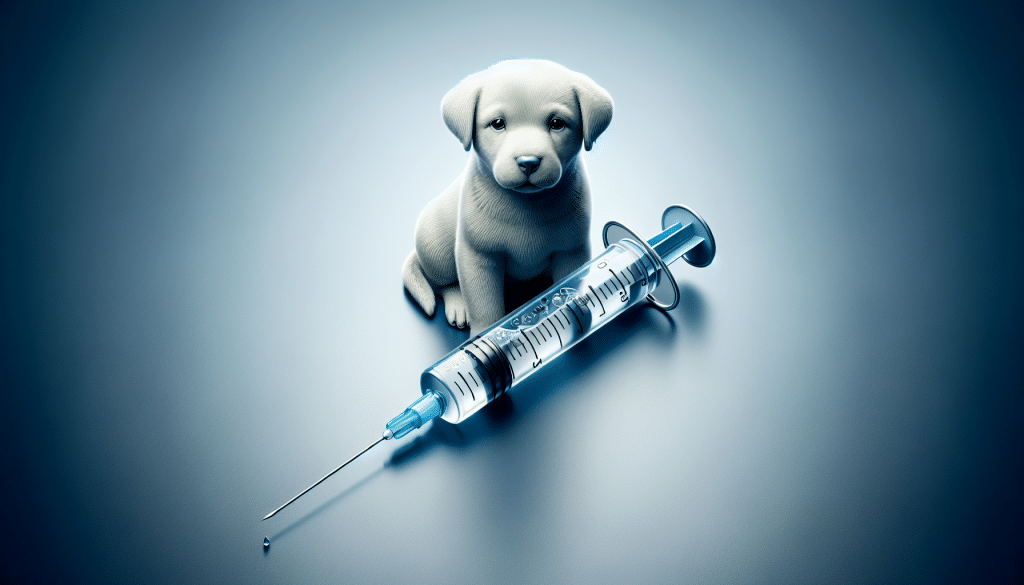
Vaccine Side Effects
Like any medical intervention, vaccinations may have side effects. It is important to be aware of these potential side effects and understand what is considered normal versus when to seek veterinary attention.
Common Side Effects
Common side effects of vaccinations in puppies include mild fever, fatigue, reduced appetite, and localized swelling or tenderness at the injection site. These side effects usually resolve on their own within a few days. It is essential to provide your puppy with a comfortable and stress-free environment during this time. If you notice any mild side effects after vaccination, monitor your puppy closely and contact your veterinarian if symptoms persist or worsen.
Uncommon Side Effects
Uncommon side effects of vaccinations in puppies may include allergic reactions, hives, itchiness, vomiting, and diarrhea. While these reactions are rare, they can occur in sensitive individuals. If you observe any of these symptoms after vaccination, it is important to consult your veterinarian promptly. They can evaluate your puppy's condition and provide appropriate medical care if necessary.
Severe Reactions
Severe reactions to vaccinations are extremely rare but can occur. Signs of a severe reaction include difficulty breathing, facial swelling, collapse, or seizures. If your puppy shows any of these severe symptoms after vaccination, seek emergency veterinary care immediately. These reactions require immediate attention to ensure the well-being and safety of your puppy.
Preparing for Vaccinations
Preparing for your puppy's vaccinations involves several important steps to ensure a positive and stress-free experience. From finding a veterinarian to creating a calm environment and ensuring proper nutrition, these preparations contribute to a smooth vaccination process.
Finding a Veterinarian
Finding a reputable and trustworthy veterinarian is crucial for your puppy's overall health and well-being. Look for a veterinarian with experience in puppy care and vaccinations, as they will have the knowledge and expertise to provide the best care for your furry friend. Ask for recommendations from friends, family, or local pet communities, and schedule a consultation with potential veterinarians to ensure a good fit. Building a strong relationship with your veterinarian will ensure that your puppy receives the necessary vaccinations and preventive care throughout their life.
Creating a Calm Environment
Puppies can be sensitive to new experiences, including vaccination visits. To create a calm environment for your puppy, it is important to minimize stress and anxiety. Prepare for the veterinary visit by bringing familiar toys or blankets that can provide comfort to your puppy. Additionally, practice gentle handling and positive reinforcement techniques at home, gradually accustoming your puppy to being touched, examined, and restrained. This will help them feel more comfortable during the vaccination process and reduce their anxiety.
Ensuring Proper Nutrition
Proper nutrition plays a vital role in supporting your puppy's immune system and overall health. Before vaccinations, ensure that your puppy is on a balanced and appropriate diet recommended by your veterinarian. A well-nourished puppy will have a stronger immune system, increasing the likelihood of an effective immune response to vaccines. Consult with your veterinarian to determine the most suitable diet for your puppy's specific needs, including appropriate portions and feeding schedules.
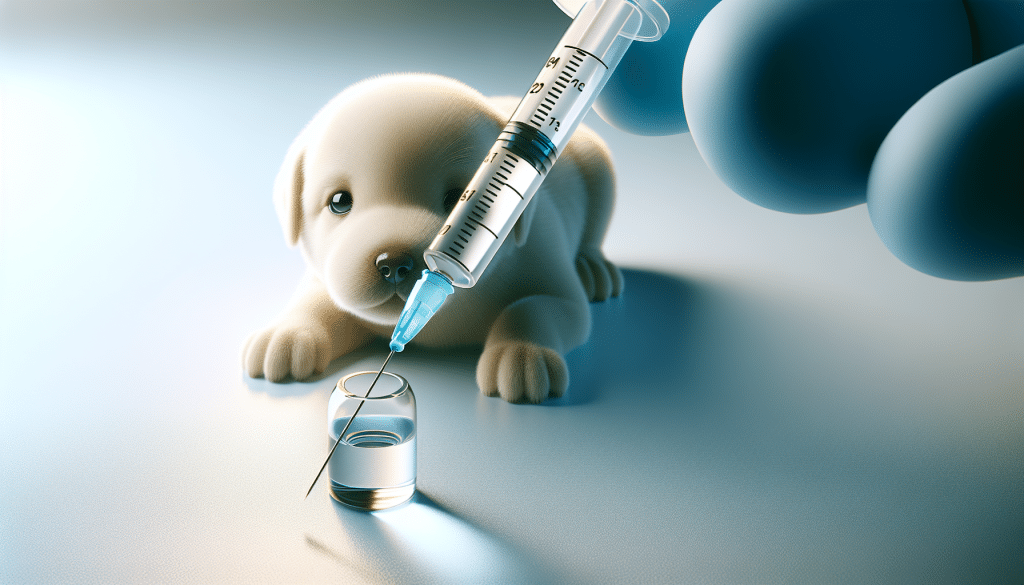
Other Preventive Measures
While vaccinations are crucial for your puppy's health, they are just one part of a comprehensive preventive care plan. Additional measures, such as parasite control, spaying or neutering, and proper socialization, are equally important in keeping your puppy protected and ensuring their well-being.
Parasite Control
Parasites, such as fleas, ticks, and intestinal worms, can pose significant health risks to puppies. Implementing a regular parasite control plan is essential in maintaining your puppy's health and preventing infestations. Consult with your veterinarian about the most suitable preventive measures, including flea and tick medications, regular deworming treatments, and appropriate vaccinations for parasites like heartworm. Following your veterinarian's recommendations for parasite control will help keep your puppy safe and healthy.
Spaying or Neutering
Spaying or neutering your puppy is an important step in preventing unwanted pregnancies, reducing the risk of certain diseases, and curbing behavioral issues. Discuss the optimal timing for spaying or neutering with your veterinarian, taking into account your puppy's breed, age, and overall health. Spaying or neutering is a responsible decision that contributes to the well-being of your puppy and helps control the pet population.
Proper Socialization
Proper socialization is crucial for puppies to develop into well-adjusted adult dogs. Socializing involves exposing your puppy to a variety of environments, people, animals, and experiences to help them develop confidence and good manners. By providing positive and controlled socialization opportunities, you are helping your puppy become comfortable and well-behaved in different situations. Socialization can include puppy classes, supervised interactions with other dogs and animals, and exposure to various sights and sounds. Consult with your veterinarian or a professional dog trainer for guidance on creating a comprehensive socialization plan for your puppy.
Vaccine Records and Documentation
Maintaining accurate vaccination records and documentation is essential for your puppy's health and compliance with legal requirements. Proper record-keeping not only allows you to keep track of your puppy's vaccination history but also facilitates ongoing veterinary care and ensures a smooth transition if you change veterinarians or have to provide proof of vaccination.
Maintaining Vaccination Records
When you first receive your puppy's initial vaccinations, ensure that you receive a copy of the vaccination records from your veterinarian. This record should include details such as the name and type of vaccines administered, the dates of vaccination, and any booster shots that may be necessary. Keep these records in a secure and easily accessible place. Make a habit of updating the records each time your puppy receives a vaccination or booster shot to maintain an accurate and up-to-date record.
Digital Records and Apps
In the digital age, technology offers convenient solutions for managing your puppy's vaccination records. Numerous mobile applications and websites enable you to store and access your puppy's vaccination records electronically. Such tools allow for easy retrieval of records, simplifying communication with veterinarians and ensuring that you have all necessary information readily available. Explore digital record-keeping options, but ensure that you choose a secure platform that protects your puppy's sensitive information.
In conclusion, vaccinations are of utmost importance for puppies. They prevent fatal diseases, build immunity, protect others, and ensure compliance with legal requirements. Following a proper vaccination schedule, administering core and non-core vaccines, and maintaining vaccination records are essential steps in safeguarding your puppy's health. Additionally, other preventive measures like parasite control, spaying or neutering, and proper socialization contribute to your puppy's overall well-being. By taking these proactive measures, you are investing in the long and happy life of your furry companion.

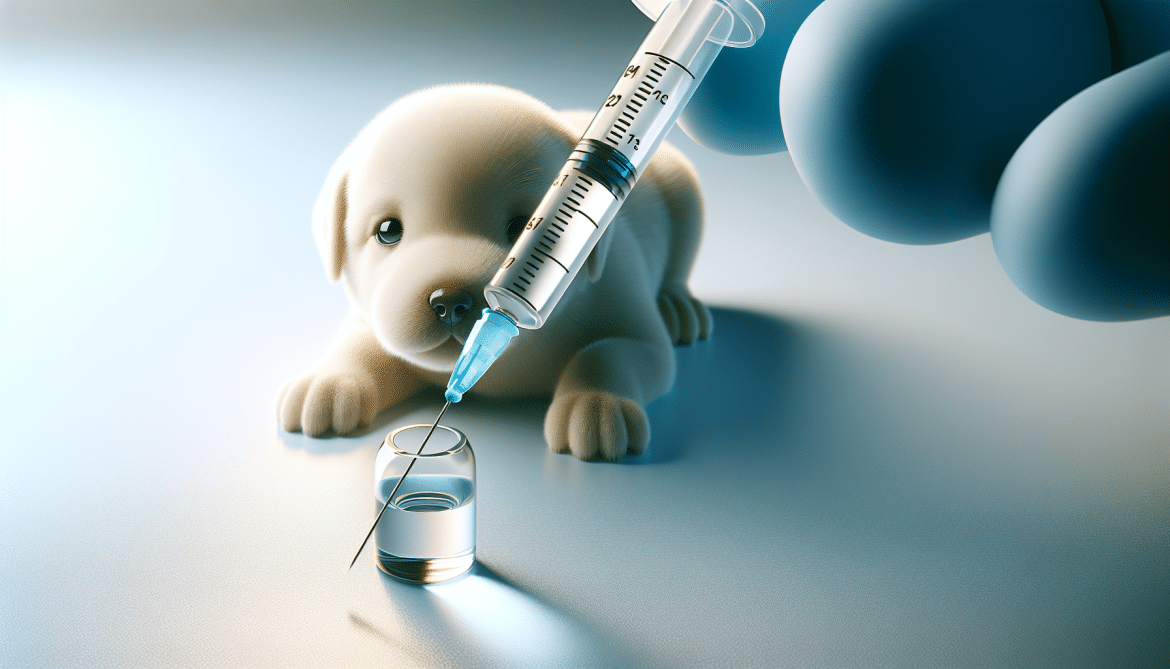

1 comment
[…] to meet their nutritional needs. Additionally, skipping meals or following irregular feeding schedules can adversely affect your puppy’s digestive system and overall health. Lastly, avoid inadequate supplementation or using supplements […]
Comments are closed.